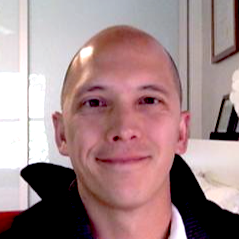Most of the decisions that I regret were made in response to emotions that I felt in the moment.
They had various triggers. Maybe it'd be a critical comment in GitHub or Google Docs. Or maybe someone would disagree with me in a team-wide email thread. Or I could be hearing some difficult feedback in a 1-on-1. Each time, I felt the same surge of embarrassment, anxiety, and anger, and the same set of physical symptoms: a tightness in my stomach, heat rushing to my face, tenseness in my shoulders.
Most crucially, any decision I made while in this state would inevitably be a poor one. I'd respond in a way that would derail the discussion, fray a relationship, or just impede progress. My reputation would take a hit.
Human psychology models the experience of emotion as a wave that builds in intensity, peaks, and then fades. For me, this emotional wave surges in, rising quickly, shocking me and displacing me. I'm disoriented. If I act in this moment, I'll only make things worse. But if I can ride it out until the wave has subsided, I'll be able to think clearly and act deliberately.
Developing an early-warning system
Before I can ride out a wave, I need to spot it coming. Which can seem a bit chicken-and-egg, because it requires seeing clearly when emotions are already starting to cloud my vision. In "Thanks for the Feedback", Douglas Stone and Sheila Heen share advice on how to notice and sort through emotions triggered by critical feedback:
As you observe how you feel (or remember how you felt), try to name the feeling: anxiety, shame, anger, sadness, surprise. Work hard to notice how the feeling feels – physically – the same way you would describe the physical symptoms of food poisoning or the flu.
Identifying the physical symptoms that accompany these emotions helps me use them as an early-warning system. They tell me, "Hey, whatever you're going to do – don't! Just wait!" Practice has made me better at remaining mindful when I get hit by an emotional wave, but it's never easy and sometimes I still slip.
Dealing with the ripples
Maya Angelou is misattributed with saying, "They may forget what you said, but they will never forget how you made them feel." Our perception of one another is shaped by how we make each other feel in our interactions. I think this is normal and natural and human, but it can manifest in unhelpful ways if the feelings are negative:
- Biases against the other person's opinions or work
- Holding a grudge
- Undermining their efforts
- Talking behind the other person's back
I think of these antipatterns like little ripples left behind by that original emotional wave that are trying to push me off course. Thoughts that lead in these directions usually arise because I've left something unresolved. Am I missing closure from a disagreement? Do I need to clear the air with someone? If I don't know what it is, I'll try to talk through the situation with a mentor or someone I trust.
Building breakwaters
I've made deliberate changes in my mindset that have reduced or eliminated the triggers of some waves. You could think of these as "breakwaters". For example, I used to identify strongly with my work and ideas, and so criticism of those things would feel like criticism of me. Over time I learned to uncouple my ego from my work and I also developed some tactics for dealing with any waves that managed to slip through.
I've found these to be time-consuming to build, and they don't transfer easily from one situation to another. So as I discover novel situations that can trigger emotional waves, I have to spend time reflecting and developing new breakwaters.
What triggers your emotional waves? Are there any ripples pushing you off course? What kind of breakwaters do you want to build?

